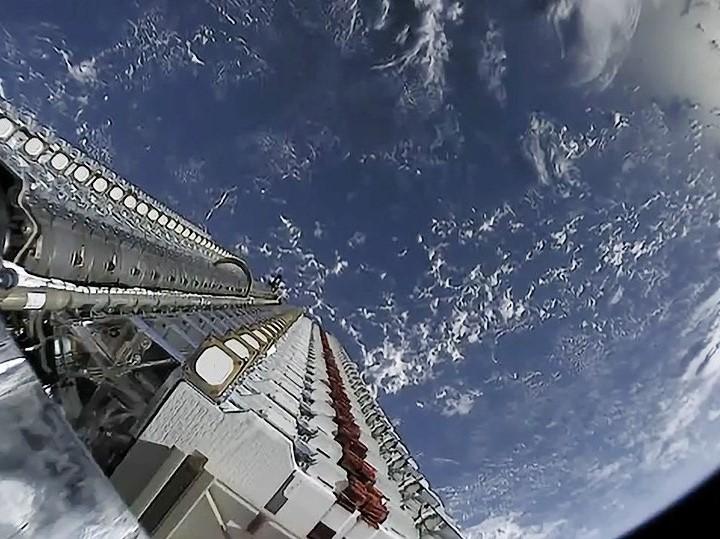SpaceX’s Starlink satellites could be a stronger, more secure alternative to GPS, new research suggests
Starlink is not as accurate as GPS currently, but it is more difficult to breach and could have even stronger signal strength in future

SpaceX’s Starlink satellites may be used for navigation and GPS in the future, a new study suggests.
Engineers from Ohio State University have developed a means to use signals broadcast by Starlink to locate a position on Earth.
It is the first time the system has been used by scientists outside of SpaceX, and the researchers say they only used data related to the satellites movement and location – not the actual data being sent through the satellites.
“We eavesdropped on the signal, and then we designed sophisticated algorithms to pinpoint our location, and we showed that it works with great accuracy,” said Zak Kassas, director of the Center for Automated Vehicles Research with Multimodal Assured Navigation (CARMEN) at Ohio State.
“Even though Starlink wasn’t designed for navigation purposes, we showed that it was possible to learn parts of the system well enough to use it for navigation.
“The important catch here is that we are not ‘listening’ in on what is being sent over these satellites. We learned the signals just well enough to harness them for navigation purposes.”
Using their algorithm, they were able to identify an antenna at the campus of University of California, Irvine, within approximately 7.7 metres – although this is still significantly less accurate than GPS, which identifies areas with an accuracy of between 0.3 and five metres. Using other low Earth orbit (LEO) systems, the researchers could pinpoint an area with an accuracy of 23 metres.
SpaceX currently has under 2,000 satellites in orbit but intends to launch over 40,000 more. The researchers say that as the constellation grows the accuracy of the system will increase.
Eventually, it is believed this research could be used as an alternative – and more secure – version of GPS, since global positioning systems are weaker than the signals given off by LEO constellations, due to their distance.
In addition, GPS uses well-known signals, and while this is a benefit to companies making equipment that use those signals, it makes it vulnerable to spoofing or jamming attacks which, in some situations, can even put malicious individuals in control of military drones or maritime vessels.
Subscribe to Independent Premium to bookmark this article
Want to bookmark your favourite articles and stories to read or reference later? Start your Independent Premium subscription today.

Join our commenting forum
Join thought-provoking conversations, follow other Independent readers and see their replies